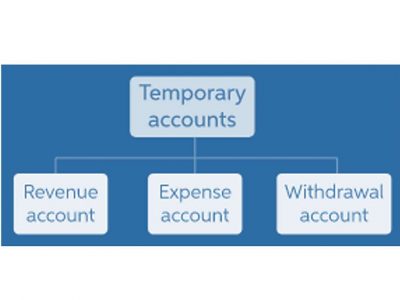However, it’s fairly uncommon for “Million” to be abbreviated outside of scientific circles. Most mm meaning native speakers wouldn’t care much about “million” as an abbreviation because they won’t often come across the number in their daily lives. You shouldn’t use abbreviations in academic or official writing.
Supercharge your skills with Premium Templates
You have to be careful when using it or interpreting it because MM can stand for other things too. While obscure outside banking circles, MM enjoys near universal usage within finance and accounting as the standard abbreviation for “millions”. This convention originated from Roman numeral accounting traditions and became engrained centuries ago. Today, MM remains the standard abbreviation for millions throughout the banking and accounting professions.
What Does ‘MM’ Mean in Accounting?
You can use any of the above abbreviations for thousand options when referring virtual accountant to thousands in writing. While the letter “k” is the most common abbreviation, there are a few different ways to abbreviate thousand. Whether the topic is significant sums of money or a massive quantity of something, it’s common to use abbreviations when writing out large numbers in text. Some abbreviations for million options may surprise you, as is also true for some of the other large number abbreviations. As stated above, MM is generally used in business to represent millions since the letter M by itself has historically meant 1,000. That said, if your organization uses M and it doesn’t cause confusion, you are free to use M to abbreviate one million.
“M” vs. “MM” – What Is The Correct Abbreviation for “Million”?
“M” is the most common abbreviation for “million.” If you’re going to abbreviate “million,” it would usually turn into this form. It makes the most sense considering that “million” starts with the letter “M.” Most abbreviations follow this standard practice. However, it’s worth noting that “MM” is also commonly used in investment banking, especially in large-scale financial QuickBooks transactions and deals involving millions of dollars or euros. Now that we have an understanding of the common abbreviations, let’s explore the specific contexts in which “M” and “MM” are used. To save time, space, and enhance readability, professionals have developed standard abbreviations for “million” that convey the same meaning while being concise and visually efficient.
- If you’re dealing with mergers and acquisitions, bond issuances, or investment portfolios, it’s essential to be familiar with both “M” and “MM” to ensure accurate communication.
- One thing to consider is that when writing about large amounts of money, the words “million” or “billion” are often left out altogether, as are superfluous zeroes.
- In the sectors of finance, business, and academia, abbreviating “million” is vital.
- Use abbreviations in informal scenarios like notes and unimportant communication where context exists.
- “mm” is often left uncapitalized (though there are no specific rules that state which way it should be written).
- Large enterprises often present their financial statements and other reports with the figures in the millions, i.e., and they use ($ MM).
- Avoid using abbreviations excessively or informally in documents, reports, or academic papers unless it aligns with the accepted conventions and guidelines of the particular context.
- MM is the symbol used for representing the numbers in millions, whereas the symbol m is used as thousand in roman numbers and so mm is thousand multiplied by thousand, which is equal to 1 million.
- The word “million” is most often used in reference to money, but is also frequently used in exaggeration.
- In finance and accounting, MM (or lowercase “mm”) commonly denotes that the units of figures presented are in millions.
- We don’t know for sure why the Romans used letters or why they chose the letters they did.
Use abbreviations in informal scenarios like notes and unimportant communication where context exists. If the company sells 26,000 units, the accountant can record that as 26M units. If net income runs to $6,500,000, it goes on the books as $6.5MM.
Unlock your potential and accelerate your career with sought-after management and leadership skills. Yes, “M” is widely recognized across international finance and business sectors. Mixing both abbreviations can lead to confusion and render your writing less effective. By using this concise abbreviation, journalists can save valuable space and capture readers’ attention without overwhelming them with lengthy figures. If you’re dealing with mergers and acquisitions, bond issuances, or investment portfolios, it’s essential to be familiar with both “M” and “MM” to ensure accurate communication.




